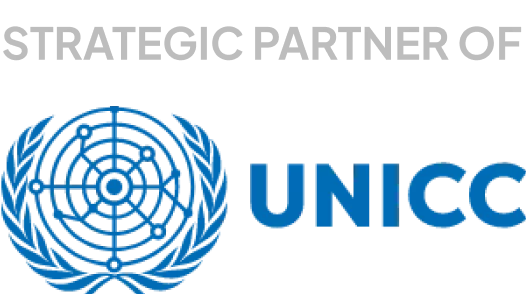
Survey & Monitoring
🇮🇩
Innovation for Digitizing Vaccine Stocks
SMILE (Sistem Monitoring Imunisasi Logistik secara Elektronik) - an innovative technology solution to strengthen the immunization vaccine supply chain system in Indonesia.
433,715,794
Total distribution of Covid Vaccines per November 10, 2022
Overview
Key Features
Scope: Website & Mobile App
Main Features: Inventory Management, Order Management, Asset Management, Dashboard Vaccine Distribution, Reporting, Vaccine Planning, Disposal Management
Complexity
Team Formation
2 Project Managers
2 System Analysts
8 Developers
2 UI/UX Designers
2 Software Testers
Timeline
Complexity
Technology





















Team Formation
2 Project Managers
2 System Analysts
8 Developers
2 UI/UX Designers
2 Software Testers
Timeline
Background
Indonesia, the country with the 4th largest population in the world, has a birth cohort of about 5 million per year. Therefore, the need for equal distribution of vaccines is a priority for public health protection. With a population of more than 270 million people, the distribution of vaccines is not easy. Moreover, geographic conditions with hundreds of thousands of islands in Indonesia, cold chain management, and the complexity of the health information system make logistics distribution a challenge for vaccine distribution in Indonesia.
Problem
Difficulty to monitor the distribution of vaccines in Indonesia
Lack of control to ensures quality and safety of vaccines
Human eror in selecting and recording the vaccine supply
Be a part of something big, beyond
the quality but also building a legacy.
Discover new experience with us

“Million Daily Goodness” Company

End to End Client Collaboration

Peace of Mind.

Secured Project Knowledge.

Product Activation by Founder+

Scope of work
Solution
The Ministry of Health, supported by UNDP, has developed an information system to support effective, efficient, and targeted vaccine distribution called SMILE: “Sistem Monitoring Imunisasi Logistik secara Elektronik”.
A supply chain and logistics management system, based on mobile apps and web-based, that provides all the information needed related to vaccine stock, in terms of quantity, quality, and storage temperature, as well as the real-time location where the vaccine stock is located.
Quality monitoring is carried out through the integration of IoT with devices placed in the refrigerator where the vaccine is stored. SMILE is also used for vaccine distribution for the COVID-19 pandemic.
9/10
Cepat tanggap, komunikatif, aktif memberikan feedback dan perbaikan sistem.
Tian
UNDP









